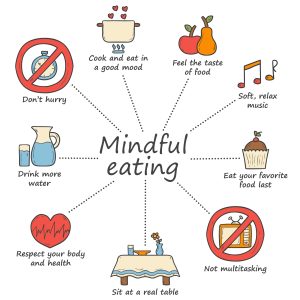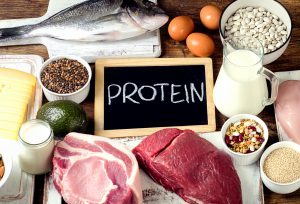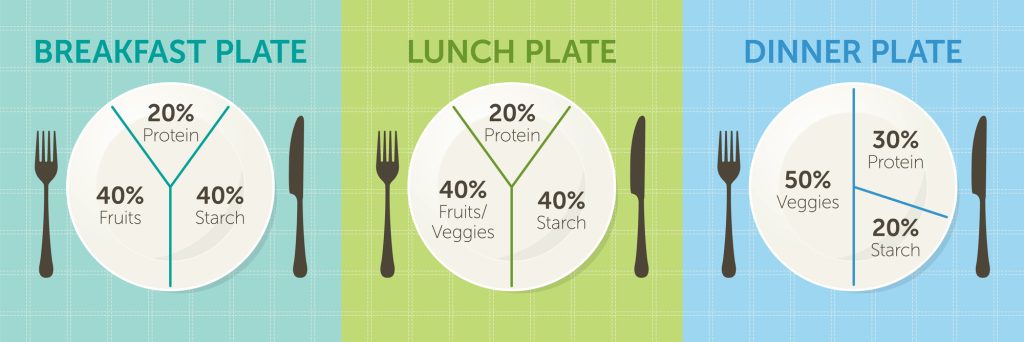Can you lose weight without exercising?
How to Lose Weight Fast Without Exercise
In today’s fast-paced world, many individuals seek effective ways to shed those extra pounds without the commitment of rigorous exercise routines. While physical activity is undoubtedly beneficial, there are numerous other methods to achieve weight loss. In this article, we will delve deep into scientifically-backed strategies to help you lose weight without breaking a sweat. So how do you lose weight fast without exercise?
1. Mindful Eating: The Power of Awareness

In the realm of nutrition and weight management, mindful eating emerges as a transformative approach, transcending traditional dieting paradigms. Rooted in ancient practices and validated by modern science, mindful eating is not just a diet but a holistic way of relating to food. By cultivating awareness and understanding our relationship with food, we can make empowered choices that align with our health goals.
The Essence of Mindful Eating
Mindful eating is the practice of being fully present during meals. It’s about experiencing food with all our senses, from the colors and textures to the flavors and aromas. More than just eating, it’s about understanding the journey of food, from farm to fork, and appreciating the nourishment it provides.
Key Principles of Mindful Eating
- Presence Over Distraction: In today’s digital age, meals are often accompanied by screens, be it televisions, phones, or computers. Mindful eating encourages eliminating these distractions, allowing us to be fully present with our food.
- Understanding Hunger and Fullness Cues: Our bodies are equipped with intricate signals that indicate hunger and satiety. By tuning into these cues, we can eat when genuinely hungry and stop when satisfied, preventing overconsumption.
- Savoring Every Bite: This involves chewing slowly and truly tasting the food. By savoring each bite, we not only enjoy our food more but also give our bodies the time to signal when it’s full.
- Acknowledging Emotional Eating: Often, we eat not out of hunger but emotion. Recognizing the triggers that lead to emotional eating can help in addressing the root cause rather than using food as a temporary salve.
- Gratitude for the Meal: Taking a moment to express gratitude for the food and acknowledging the effort that went into producing and preparing it can enhance the eating experience.
Benefits of Mindful Eating
- Promotes Weight Management: By listening to our body’s cues and eating only when hungry, we naturally consume fewer calories, aiding in weight management.
- Enhances Digestion: Eating slowly and chewing thoroughly aids in the digestive process, ensuring better nutrient absorption.
- Reduces Overeating: Recognizing fullness cues prevents overconsumption, reducing the likelihood of post-meal discomfort.
- Improves Relationship with Food: By understanding and respecting our body’s needs, we foster a healthier relationship with food, free from guilt or restriction.
- Boosts Overall Well-being: Beyond physical health, mindful eating can enhance mental well-being by reducing stress and promoting a sense of contentment.
Mindful eating is a powerful tool in the journey towards optimal health. By cultivating awareness and making conscious choices, we can transform our relationship with food, leading to holistic well-being. Embracing the principles of mindful eating not only benefits our body but also nourishes our mind and soul. Eating right is the most important thing you can do if you wish to lose weight fast without exercising; remember you must have a caloric deficit to lose weight at the end of the day.
2. Prioritize Protein: The Satiety Booster

In the vast landscape of nutrition, protein stands tall as a cornerstone macronutrient, integral to our body’s myriad functions. Beyond its well-known role in muscle synthesis and repair, protein plays a pivotal role in weight management and satiety. This article delves into the profound impact of protein on our dietary choices and its potential to revolutionize our approach to weight loss.
The Fundamental Role of Protein
Proteins are complex molecules composed of amino acid chains. They are the building blocks of our muscles, skin, enzymes, and hormones. Every cell in the human body contains protein, making it essential for growth, repair, and overall maintenance.
Why Protein is a Satiety Powerhouse
- Metabolic Enhancement: Protein has a higher thermic effect than fats or carbohydrates. This means our body expends more energy digesting and metabolizing protein, leading to increased calorie burn.
- Appetite Regulation: Protein-rich meals lead to the release of satiety hormones, such as PYY and GLP-1, which signal the brain to reduce appetite and increase feelings of fullness.
- Blood Sugar Stabilization: Protein slows the absorption of carbohydrates, leading to a more gradual rise in blood sugar levels. This prevents rapid spikes and crashes, which can trigger hunger and cravings.
Incorporating Protein into Your Diet
- Lean Meats: Options like chicken, turkey, and lean cuts of beef are excellent sources of high-quality protein.
- Fish: Fatty fish like salmon, mackerel, and sardines not only provide protein but also essential omega-3 fatty acids.
- Dairy and Eggs: Greek yogurt, cottage cheese, milk, and eggs are protein-rich and can be easily incorporated into various meals.
- Plant-Based Sources: Legumes, lentils, chickpeas, quinoa, and tofu offer substantial protein content for those following vegetarian or vegan diets.
- Protein Supplements: For those who struggle to meet their protein needs through whole foods, protein powders derived from whey, casein, or plants can be a convenient addition.
Optimal Protein Intake
While individual protein needs vary based on factors like age, activity level, and health status, a general guideline suggests aiming for 1.2 to 2.2 grams of protein per kilogram of body weight, especially for those looking to lose weight or build muscle.
Benefits of Prioritizing Protein
- Sustainable Weight Loss: With its appetite-regulating properties, protein can help reduce overall caloric intake, leading to sustainable weight loss.
- Muscle Preservation: During weight loss, the body can lose muscle mass. A higher protein intake ensures that muscle tissue is preserved.
- Enhanced Recovery: For active individuals, protein aids in faster muscle recovery post-exercise, reducing soreness and fatigue.
Prioritizing protein is not merely a dietary trend but a scientifically backed strategy to enhance satiety, manage weight, and improve overall health. By understanding its multifaceted benefits and incorporating it adequately into our diets, we can harness the power of protein to achieve our health and wellness goals. Protein intake is another important step in decreasing your caloric intake so you can lose weight faster without an exercise program
3. Hydration: More Than Just Quenching Thirst

Water, often termed the ‘elixir of life,’ is fundamental to our existence. While its primary role in quenching our thirst is universally acknowledged, the broader implications of hydration on our health often remain underappreciated. This exploration into hydration seeks to shed light on its multifaceted significance and the profound impact it has on our overall well-being.
The Indispensable Role of Water
Comprising approximately 60% of the human body, water is not just a component but the very medium in which various physiological processes occur. It facilitates nutrient transportation, acts as a solvent for minerals and salts, aids in temperature regulation, and plays a pivotal role in waste elimination.
The Multifaceted Benefits of Adequate Hydration
- Metabolic Boost: Proper hydration is instrumental in optimizing metabolic processes. It aids in the efficient breakdown of food, ensuring nutrients are assimilated and waste products are excreted effectively.
- Cognitive Clarity: Hydration has a direct correlation with cognitive functions. Even mild dehydration can impair concentration, mood, and analytical ability.
- Detoxification: One of the primary roles of water is to flush out toxins from the body. Through urine and sweat, harmful by-products are eliminated, ensuring systemic health.
- Joint and Muscle Function: Water acts as a lubricant for our joints and aids in muscle function. Adequate hydration can prevent cramps, stiffness, and joint-related issues.
- Skin Health: Hydrated skin is healthy skin. Adequate water intake ensures skin elasticity, reduces the appearance of fine lines, and imparts a natural glow.
Recognizing Dehydration
Dehydration isn’t always evident, especially in its initial stages. Some tell-tale signs include:
- Persistent thirst
- Dark yellow urine
- Reduced urine output
- Dry skin and lips
- Fatigue and dizziness
- Rapid heartbeat and breathing
Guidelines for Optimal Hydration
While the ‘8×8’ rule, which recommends eight 8-ounce glasses of water a day, is a good starting point, individual hydration needs can vary. Factors such as age, climate, physical activity, and individual health conditions play a role. It’s essential to listen to one’s body and adjust water intake accordingly.
Hydration, in its essence, is a continuous dialogue between the body and its environment. It’s a balance that ensures optimal function and health. Recognizing the profound importance of hydration and making conscious efforts to maintain it can significantly enhance our quality of life. Water also is a great way to suppress your appetite and reduce caloric intake. I know I’ve said this before but you must have a caloric deficit at the end of the day to lose weight if you choose not to exercise.
4. Sleep: The Underrated Weight Loss Tool

In the intricate tapestry of factors influencing weight loss, sleep often remains an overlooked thread. While diet and exercise are undeniably vital, the role of quality sleep in weight management is equally paramount. This exploration seeks to underscore the profound connection between sleep and weight loss, emphasizing its significance in a holistic approach to health and well-being.
The Integral Role of Sleep in Bodily Functions
Sleep is not merely a passive state of rest; it’s an active period where the body undergoes repair, rejuvenation, and recalibration. From cognitive functions to metabolic processes, sleep plays a pivotal role in ensuring the body’s optimal performance.
The Direct Correlation Between Sleep and Weight Management
- Hormonal Balance: Sleep is instrumental in regulating hormones related to appetite, namely ghrelin (which signals hunger) and leptin (which signals fullness). Sleep deprivation can lead to an imbalance, with increased ghrelin and decreased leptin levels, often resulting in overeating.
- Metabolic Function: A consistent sleep pattern aids in maintaining a healthy metabolism. Lack of sleep can disrupt the body’s ability to process carbohydrates effectively, leading to fat storage and increased insulin production.
- Muscle Growth and Repair: Physical activity causes micro-tears in muscles, which repair and grow during deep sleep stages. Adequate sleep ensures effective muscle recovery, which in turn boosts metabolic rate and calorie burn.
- Stress Regulation: Chronic sleep deprivation can elevate cortisol levels, a stress hormone directly linked to weight gain, particularly around the abdominal area.
- Decision Making and Willpower: A well-rested mind is more equipped to make healthier food choices and resist temptations. Sleep deprivation can impair judgment and increase cravings for high-calorie, sugary foods.
The Consequences of Sleep Deprivation on Weight
- Increased Caloric Intake: Lack of sleep often leads to increased snacking and larger portion sizes.
- Reduced Physical Activity: Fatigue from poor sleep can result in reduced motivation to exercise or engage in physical activities.
- Altered Thermogenesis: Sleep deprivation can affect the body’s thermogenesis, leading to reduced calorie burn.
Recommendations for Optimal Sleep
- Consistency is Key: Aim for 7-9 hours of uninterrupted sleep every night. Establishing a regular sleep-wake cycle, even on weekends, can regulate the body’s internal clock.
- Create a Sleep-Conducive Environment: Ensure the bedroom is dark, quiet, and cool. Consider using blackout curtains, earplugs, or white noise machines if necessary.
- Limit Screen Time: The blue light emitted from phones, tablets, and computers can disrupt the production of melatonin, a sleep-inducing hormone. It’s advisable to limit screen exposure at least an hour before bedtime.
- Mindful Consumption: Avoid caffeine and large meals close to bedtime. Both can disrupt the sleep cycle and affect sleep quality.
Sleep, often overshadowed by diet and exercise, emerges as a critical component in the weight loss equation. Recognizing its profound impact and ensuring consistent, quality sleep can significantly enhance weight management efforts. In the journey towards optimal health, sleep is not a luxury but an essential, non-negotiable component. Staying up late just extends the window for more caloric intake. We’re in section four now, have you noticed my mentioning of caloric intake yet? If you want to lose weight fast without exercise you need a caloric deficit.
5. Fiber-Rich Foods: Nature’s Appetite Suppressant

In the vast realm of nutrition, fiber stands out as a natural powerhouse, offering a plethora of health benefits. Often dubbed ‘Nature’s Appetite Suppressant,’ fiber-rich foods play a pivotal role in weight management and overall digestive health. This exploration delves into the multifaceted benefits of fiber and its significance in promoting satiety and well-being.
Understanding Dietary Fiber
Dietary fiber, primarily found in plant foods, is a complex carbohydrate that resists digestion in the small intestine. It is broadly classified into two categories:
- Soluble Fiber: Dissolves in water to form a gel-like substance, aiding in lowering blood cholesterol and glucose levels. Common sources include oats, beans, apples, and blueberries.
- Insoluble Fiber: Does not dissolve in water and adds bulk to the stool, promoting regular bowel movements. Sources include whole wheat, nuts, beans, and vegetables like cauliflower and green beans.
The Satiety Power of Fiber
- Volume with Fewer Calories: Fiber-rich foods tend to be low in calories but high in volume, allowing one to eat a sizable portion without consuming excessive calories. This results in a feeling of fullness with less overall caloric intake.
- Digestive Pacing: Fiber slows the digestive process, ensuring a steady release of energy. This prolonged digestion time means that the stomach remains full for longer, curbing the urge to snack frequently.
- Stabilization of Blood Sugar Levels: Fiber, particularly soluble fiber, can slow the absorption of sugar, leading to improved blood sugar levels. This stabilization prevents rapid insulin spikes, which can trigger hunger soon after a meal.
- Gut Health and Hormonal Impact: Fiber aids in promoting a healthy gut microbiome. A balanced gut can influence the production of hormones related to appetite and satiety.
Incorporating Fiber-Rich Foods into Your Diet
- Whole Grains: Opt for whole grains like quinoa, barley, and oats over refined grains. These not only provide fiber but also essential nutrients.
- Fruits and Vegetables: Incorporate a variety of colorful fruits and vegetables into your diet. The skins, in particular, are rich in fiber.
- Legumes: Beans, lentils, and chickpeas are excellent sources of both protein and fiber.
- Nuts and Seeds: Almonds, chia seeds, and flaxseeds are fiber-rich additions that can be easily integrated into various dishes.
Recommended Fiber Daily Intake
While individual needs can vary, it’s generally recommended that men aim for at least 38 grams of fiber daily, while women should aim for at least 25 grams.
Fiber-rich foods, with their natural appetite-suppressing properties, emerge as invaluable allies in the quest for optimal health and weight management. By understanding its myriad benefits and consciously incorporating fiber into our daily diets, we can harness its power for improved digestion, satiety, and overall well-being. In the landscape of nutrition, fiber truly is a natural gem that promises holistic health benefits.
6. Limit Added Sugars and Refined Carbs

In the modern dietary landscape, added sugars and refined carbohydrates have become ubiquitous, often lurking in unsuspecting foods and beverages. While they might offer a fleeting taste of sweetness or a quick energy boost, their long-term implications on health are profound. This exploration seeks to shed light on the detrimental effects of these components and underscores the importance of limiting their intake for holistic well-being.
Decoding Added Sugars and Refined Carbs
- Added Sugars: These are sugars and syrups that are added to foods or beverages during processing or preparation. They differ from naturally occurring sugars found in fruits or milk. Common sources include sodas, candies, baked goods, and many processed foods.
- Refined Carbs: Carbohydrates are naturally found in grains. However, the refining process strips these grains of their bran and germ, leaving only the endosperm. This process removes much of the fiber, vitamins, and minerals. Examples include white bread, white rice, and many pastries.
The Health Implications of Excessive Sugar Intake
- Weight Gain: Both added sugars and refined carbs are high in calories and low in nutritional value. Their rapid digestion can lead to increased hunger and subsequent overeating, contributing to weight gain.
- Blood Sugar Spikes: These components are quickly converted into glucose in the bloodstream, leading to rapid spikes in blood sugar and insulin levels. Over time, this can increase the risk of type 2 diabetes.
- Heart Health: High intake of added sugars has been linked to an increased risk of heart disease, attributed to inflammation, high triglyceride levels, and high blood pressure.
- Dental Issues: Sugary foods and beverages can lead to cavities by providing easily digestible energy for harmful bacteria in the mouth.
- Reduced Nutrient Intake: Foods high in added sugars and refined carbs often displace healthier foods in the diet, leading to reduced intake of essential nutrients.
Strategies to Limit Sugar Intake
- Read Labels: Familiarize yourself with the many names of sugars (e.g., sucrose, high fructose corn syrup, cane sugar) and check product labels to gauge sugar content.
- Opt for Whole Grains: Replace refined grains with whole grains like quinoa, brown rice, and whole wheat bread. These offer more nutrients and are digested more slowly, providing sustained energy.
- Limit Sugary Beverages: Sodas, fruit drinks, and many sports drinks are laden with added sugars. Opt for water, unsweetened teas, or beverages sweetened with natural alternatives.
- Cook at Home: Preparing meals at home allows for complete control over ingredients, making it easier to limit or eliminate added sugars and refined carbs.
- Educate and Adapt: Stay informed about the latest nutritional research and be willing to adapt and modify dietary choices accordingly.
Limiting the intake of added sugars and refined carbohydrates is not merely a dietary trend but a foundational principle of optimal health. By understanding their implications and making conscious, informed choices, we can pave the way for a healthier, more vibrant future. In the journey towards holistic health, recognizing and addressing these dietary pitfalls is paramount.
7. Stress Management: The Silent Contributor

In the intricate dance of life, stress often emerges as an uninvited partner, weaving its way into our daily routines and impacting our overall well-being. While occasional stress can be a natural response to challenges, chronic stress, if left unchecked, can have profound implications on our health. This exploration delves into the multifaceted nature of stress, its impact on our well-being, and the paramount importance of effective stress management.
Understanding Stress and How It Pertains to Losing Weight Fast
Stress is the body’s natural defense against threats and challenges, triggering the “fight or flight” response. While this mechanism can be beneficial in acute situations, prolonged exposure to stressors can lead to chronic stress, which disrupts the body’s equilibrium and can manifest in various health issues.
The Health Implications of Chronic Stress
- Mental Health: Chronic stress is a significant contributor to anxiety, depression, and other mood disorders. It can cloud judgment, trigger irritability, and lead to feelings of overwhelm.
- Physical Health: Prolonged stress can lead to a range of physical health problems, including hypertension, heart disease, diabetes, and obesity. It can also weaken the immune system, making the body more susceptible to infections.
- Digestive Issues: Stress can disrupt the digestive system, leading to issues like gastritis, ulcers, and irritable bowel syndrome.
- Sleep Disruptions: Stress often results in sleep disturbances, including insomnia, which can further exacerbate stress levels and contribute to a vicious cycle.
- Behavioral Changes: Chronic stress can lead to unhealthy coping mechanisms such as smoking, excessive alcohol consumption, overeating, or drug use.
Effective Strategies for Stress Management
- Mindfulness and Meditation: Engaging in mindfulness practices and meditation can help anchor the mind, fostering a sense of calm and clarity.
- Physical Activity: Regular exercise acts as a natural stress-reliever, releasing endorphins, which are the body’s natural painkillers and mood elevators.
- Balanced Diet: Consuming a balanced diet rich in whole foods can provide the necessary nutrients to combat the physical effects of stress.
- Limit Stimulants: Reducing the intake of stimulants like caffeine and nicotine can help in managing stress levels.
- Seek Support: Talking to someone, whether it’s a trusted friend, family member, or professional therapist, can provide relief and offer a fresh perspective on stressors.
- Time Management: Organizing tasks, setting priorities, and breaking projects into manageable steps can reduce feelings of overwhelm.
- Relaxation Techniques: Engaging in deep breathing exercises, progressive muscle relaxation, or visualization can help in calming the nervous system.
- Set Boundaries: Learn to say ‘no’ and ensure that personal and professional boundaries are set and respected.
Stress management is not a luxury but a necessity in today’s fast-paced world. Recognizing the silent yet profound impact of stress on our holistic well-being is the first step toward addressing it. By adopting effective stress management strategies and making them an integral part of our daily lives, we can navigate life’s challenges with resilience, grace, and optimal health. In the quest for holistic well-being, managing stress emerges as a silent yet powerful contributor to a balanced and fulfilling life.
8. Portion Control: Quality Over Quantity

In the modern era of super-sized meals and buffet spreads, the art of portion control often takes a backseat. However, as the adage goes, “It’s not just what you eat, but how much you eat.” Portion control is a fundamental aspect of balanced nutrition, emphasizing the importance of quality over sheer quantity. This exploration delves into the essence of portion control, its significance in health and weight management, and practical strategies to master it.
The Essence of Portion Control
Portion control is the practice of determining and consuming the right amount of food tailored to one’s individual needs. It’s not about deprivation, but rather about understanding the body’s requirements and ensuring that food intake aligns with them.
The Multifaceted Benefits of Portion Control
- Weight Management: By being mindful of portions, one can avoid overconsumption, which is a primary contributor to weight gain. It allows individuals to enjoy a variety of foods without exceeding their caloric needs.
- Enhanced Digestion: Overeating can burden the digestive system. Consuming controlled portions ensures that the digestive tract processes food more efficiently, reducing issues like bloating and indigestion.
- Stabilized Blood Sugar Levels: Large meals can cause rapid spikes and subsequent drops in blood sugar. Portion control helps in maintaining steady blood sugar levels, reducing the risk of type 2 diabetes.
- Reduced Food Waste: By serving and consuming appropriate portions, we can significantly reduce food wastage, contributing to a more sustainable and eco-friendly lifestyle.
- Mindful Eating: Portion control encourages mindfulness, making individuals more attuned to their hunger and fullness cues.
Strategies for Effective Portion Control
- Understand Serving Sizes: Familiarize yourself with standard serving sizes. For instance, a single serving of meat is typically the size of a deck of cards, while a serving of grains should fit in the palm of your hand.
- Use Smaller Plates: Opting for smaller plates can create the illusion of a fuller meal, making it easier to serve controlled portions.
- Start with Vegetables: Begin your meal with a generous portion of vegetables. They are low in calories and high in fiber, promoting satiety with fewer calories.
- Listen to Your Body: Pay attention to hunger and fullness cues. Eat slowly, giving your body the time to signal when it’s had enough.
- Limit Distractions: Eating without distractions like TV or smartphones allows for better recognition of satiety cues.
- Stay Hydrated: Drinking water before and during meals can help in feeling full faster.
- Pre-portion Snacks: Instead of eating directly from a bag or box, portion out snacks into individual servings to avoid mindless overeating.
- Practice Mindful Eating: Engage all your senses while eating, savoring the flavors, textures, and aromas. This practice enhances satisfaction and makes it easier to recognize when you’re full.
Portion control, while seemingly simple, is a powerful tool in the arsenal of holistic health and nutrition. It champions the philosophy of quality over quantity, emphasizing the importance of mindful consumption. By understanding and practicing portion control, we can enjoy a diverse range of foods, maintain optimal health, and cultivate a balanced relationship with food. In the journey towards holistic well-being, portion control emerges as a subtle yet transformative ally. Smaller portions mean less calories eaten. You know what I am going to say next……this means having a caloric deficit at the end of the day.
Can You Actually Lose Weight Fast Without Exercising?
Yes, by burning more calories than what you take in. Exercise affords you to have a greater caloric intake since you will be burning more calories by exercising. But your body burns thousands of calories just going through your typical day. Some people are so overweight that exercising may be dangerous or hurt their joints. By starting off with a disciplined diet using the above information, you can begin to lose weight immediately and then introduce exercise at a later date.
The journey to weight loss is often perceived through the narrow lens of rigorous exercise and restrictive diets. However, the reality is far more nuanced. Achieving and maintaining a healthy weight isn’t solely about physical exertion; it’s an intricate blend of dietary choices, lifestyle habits, and mental well-being.
Losing weight without an intense exercise regimen is not only feasible but also sustainable when approached holistically. The cornerstone of this approach is mindfulness. Mindful eating encourages us to be present during our meals, savoring each bite and understanding our body’s hunger and satiety cues. This heightened awareness naturally curbs overindulgence and promotes healthier food choices.
Prioritizing protein in our diet serves a dual purpose. It not only aids in muscle synthesis and repair but also acts as a natural appetite suppressant, thanks to its role in releasing satiety hormones. This, combined with the benefits of fiber-rich foods, ensures prolonged feelings of fullness and optimized digestion.
The importance of hydration extends beyond mere thirst quenching. Adequate water intake aids in detoxification, metabolic processes, and even cognitive functions, all of which indirectly contribute to weight management. Similarly, quality sleep is not just about rest; it’s about hormonal balance, metabolic regulation, and mental clarity, factors intrinsically linked to weight.
The modern diet, laden with added sugars and refined carbs, poses a significant challenge. By limiting these, we not only reduce empty calorie intake but also stabilize blood sugar levels, reducing cravings and overeating.
Stress management emerges as a silent yet potent factor in weight management. Chronic stress can lead to hormonal imbalances that trigger weight gain, especially around the abdominal area. By adopting stress-reducing techniques, we can create a conducive environment for weight loss.
Lastly, portion control is a testament to the philosophy that quality trumps quantity. By understanding and practicing portion control, we can enjoy our meals without the guilt or repercussions of overindulgence.
In essence, the path to successful weight loss is a mosaic of various elements, each as crucial as the other. By embracing these strategies and integrating them into our daily lives, we set the stage for a holistic, sustainable, and successful weight loss journey.









